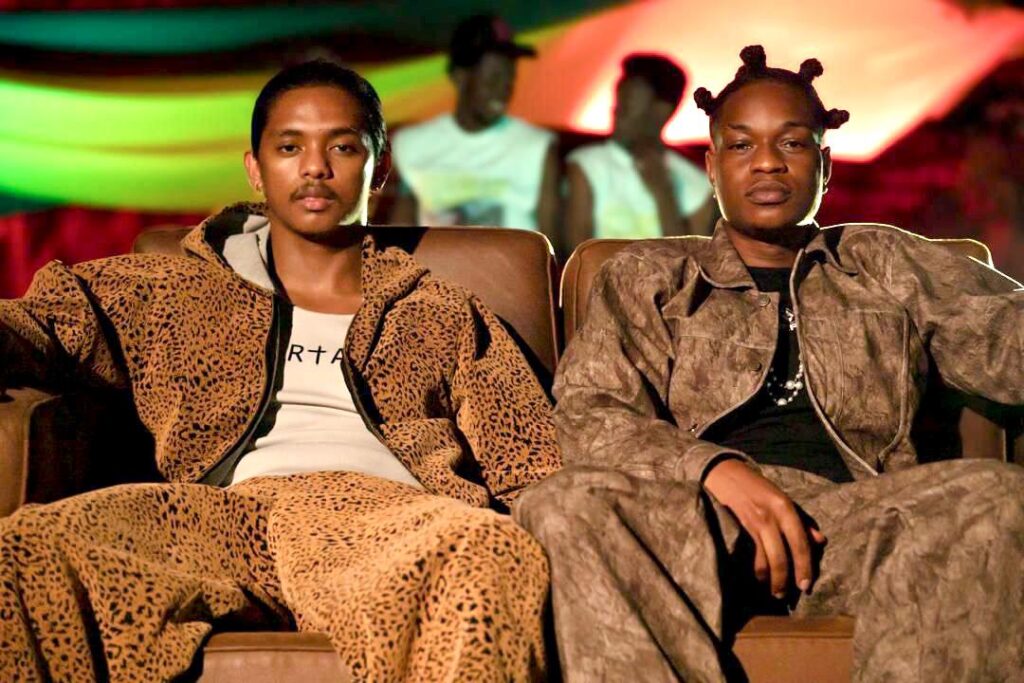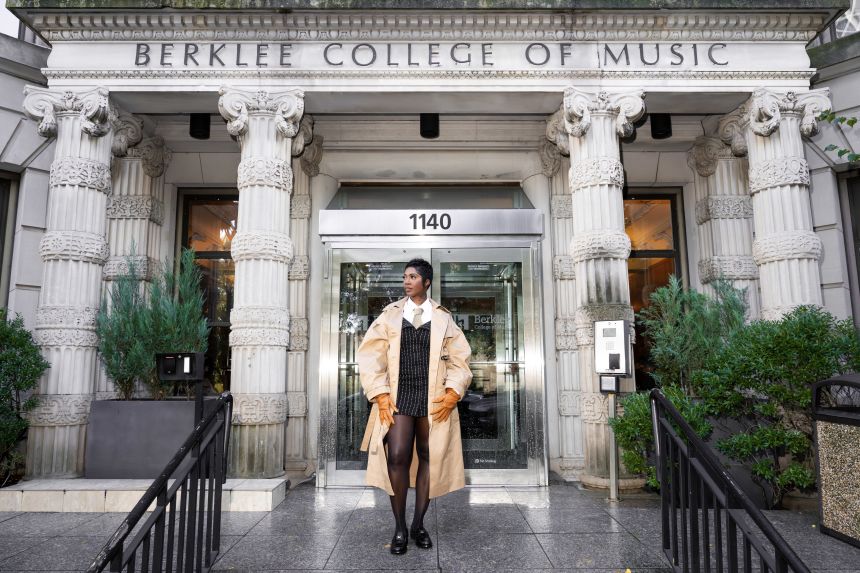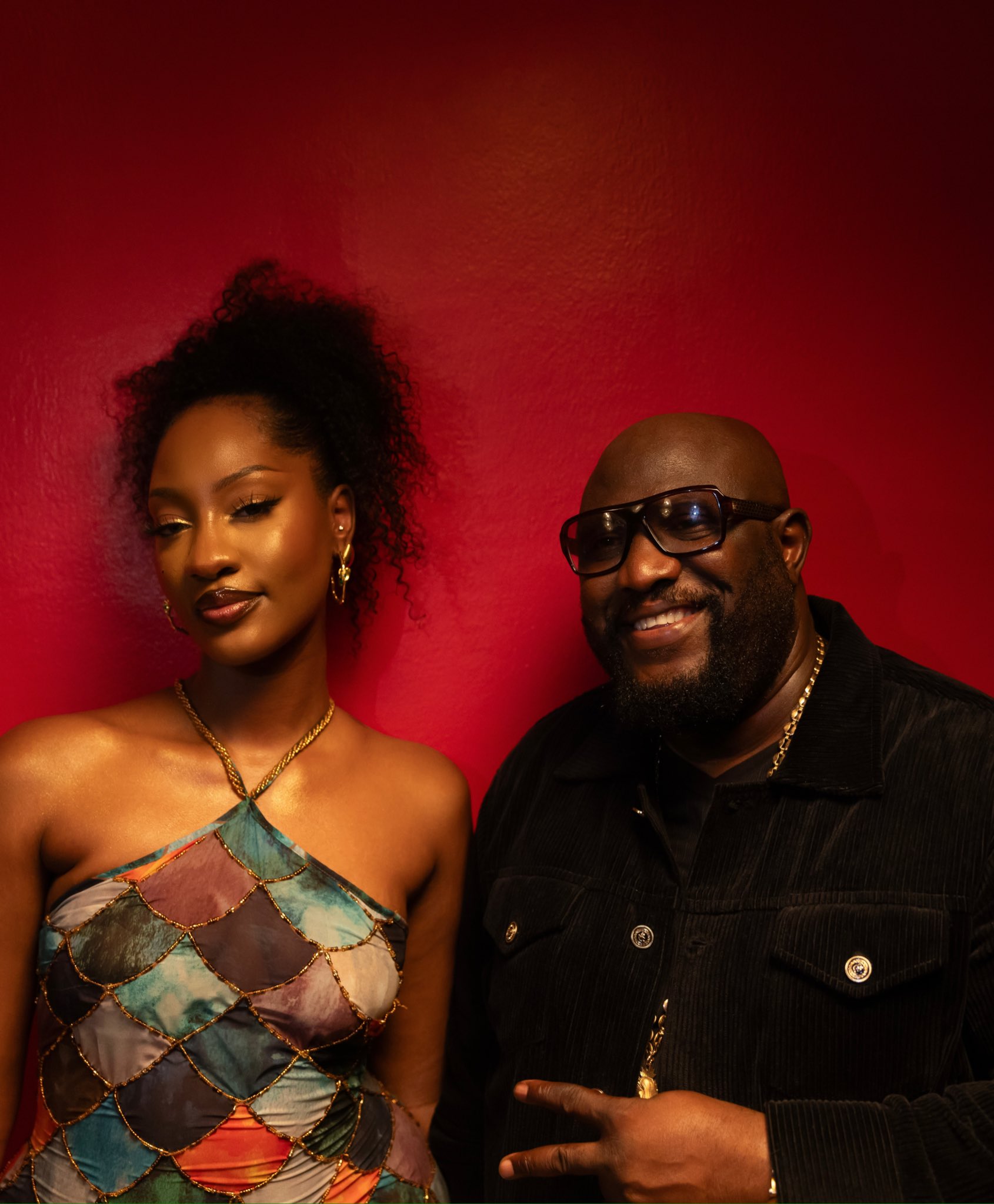There’s something almost defiant about Herman Suede. Not in the chest-thumping, industry-bashing way some young artists are lauded for, but in the quiet, deliberate manner with which he has chosen to grow up and glow up in public.
While many Gen Z creatives struggle to straddle the gulf between virality and virtuosity, the 22-year-old Ghanaian singer-songwriter appears to have found a way to do both. And look good doing it.
Born Jason Herman Bortei-Doku, Herman Suede is neither a flash in the pan nor a nostalgia-baiting wunderkind. He’s the kind of artist you might overlook if your ears are tuned solely to the bombast of the Billboard-bleeding Afrobeats wave.
But pay attention — really pay attention — and you’ll find a discography brimming with clarity, boyish angst, world-building, and melodic ambition. He’s not just making music. He’s documenting youth in motion.
Herman Suede’s musical journey didn’t begin on social media, though that’s where many now find him. His roots lie in the classical world, a child pianist by age five, schooled in melody long before he ever laced his first hook. By the time most kids were graduating from cartoons to FIFA, Herman was writing his own songs. Not covering. Not freestyling. Writing.

The Therapist (Left) and Herman Suede
This early start lends his music a sense of composure that belies his age. His 2019 debut EP Hi, I’m Herman served as a soft launch: breezy, charming, high-school-romance-in-3D energy. But with 2021’s Bittersweet, he started pulling at emotional threads with more confidence.
One by One,” in particular, felt like the thesis statement of a young man realizing that love, like pop, is never just sweet or bitter. It’s always both.
The song remains Herman’s most streamed release to date, with over half a million plays across platforms and more than 300,000 views on YouTube alone. A remix featuring Sierra Leonean superstar Therapist is out, serving as a symbolic launchpad into Herman’s post-university era — a new chapter built on the bones of his most defining track to date.
By 2023, his latest body of work A Wonderful Time marked a clear evolution. Not just sonically, where amapiano and alté flirted with highlife textures, but thematically too. “Final Destination” doesn’t just sound like a coming-of-age song. It is one. Herman Suede is now fully in that liminal space between boy and man, and he’s singing his way through it with near-religious devotion.
What makes Herman especially compelling is how he has paired musical output with purposeful presence. Back in 2019, he hosted his first headline concert After Prep, selling over 1000 tickets while also embarking on a 15-school “Meet and Greet” tour across and beyond Accra. It wasn’t just performance for applause. It was positioning. A young artist carving out his own visibility system.
He would go on to perform at some of Ghana’s most high-profile music events, from Detty Rave and Manifestivities to Ghana Rocks and the Glo Mega Music Show. But his reach has never been confined to home turf. In 2022, Herman was part of the Kizz Daniel Live in Ghana concert lineup, sharing billing with Camidoh, Gyakie, and KiDi.
He also performed at Sarkodie and R2Bees’ It’s About Time concert in New York — a cross-generational celebration of Ghanaian sound in diaspora. Then in 2023, he made his Los Angeles debut as an opener for Nigerian star Victony at The Roxy, an iconic venue tucked in the belly of Hollywood.
Yet even with all this, Herman Suede doesn’t just chase stages — he builds ecosystems. In 2023, he launched a tertiary and high school tour across institutions like Aburi Girls, Achimota, Legon, Tema International School, Legacy Girls, and the University of Education in Winneba. But it wasn’t a string of shows. It was a hybrid of concerts and talks, where Herman unpacked the realities of youth creativity and the dreams behind the streaming numbers. At a time when most artists are focused on billboard placements and DSP algorithms, Herman was in a school hall explaining the beauty of persistence.
There’s a quiet intentionality to the Herman Suede brand. Always soft but never small. His fashion is tasteful but not extravagant. His performances are intimate yet stage-worthy. He commands attention without demanding it, a rarity in today’s attention economy where artists often trade in noise just to stay noticed.
But make no mistake, Suede can turn the heat up. Whether it’s headlining his own Herman Suede To The World concert or performing to a sold-out Ghana Party in the Park in London, he’s never needed viral antics to secure a crowd. He may sing in tones of reflection, but he moves like someone deeply convinced of his own light.
And it shows in the music. Whether on Kumbaya, the spiritually textured amapiano cut, or the romantic breeziness of Vanilla, Suede laces every song with enough vulnerability to feel close, and enough polish to feel professional.
Behind the glossy visuals and serene harmonies, however, lies a real-world frustration. Suede has been candid, and rightfully so, about the structural neglect facing Ghana’s emerging music scene. Despite obvious talent, many Ghanaian artists lack the machinery to scale their sound. In interviews and social media posts, he’s hinted at the lonely grind of independence, of being celebrated at home yet under-supported by the systems that should elevate him.
But perhaps that’s what makes him such a compelling figure. He’s not waiting for permission to evolve. He’s doing it anyway. Quietly. Classily. Consistently.
In many ways, Herman Suede feels like a soft reboot of what African pop stardom could look like. Not everyone needs to shout. Not every beat needs to bang. Not every rollout needs a scandal. Sometimes, what people need is someone who sings about joy without faking it, who writes about heartbreak without romanticizing it, and who builds worlds from sounds that feel like home.
The Ghanaian music scene might not yet have a comprehensive roadmap for artists like him, but Herman Suede is already charting his own course, one dreamy harmony at a time.
And perhaps that’s the real spotlight moment here. Watching a boy grow into his voice, and choosing to do it his way.




